A Hilarious Conversation with the Men Who Made 'Bros'
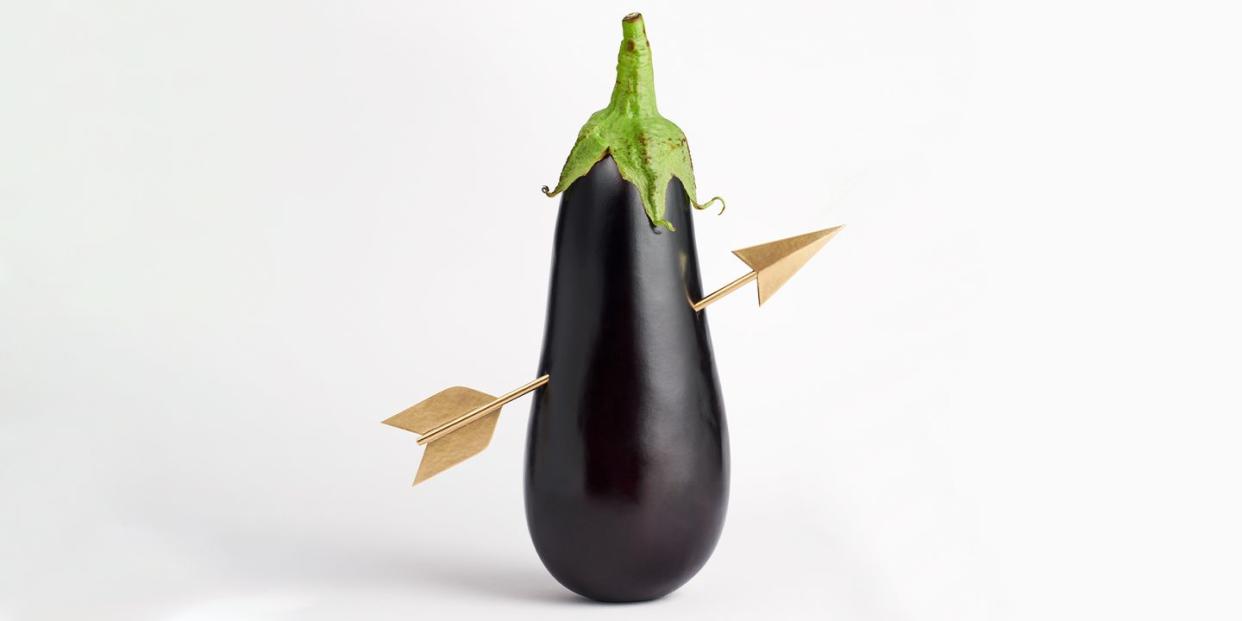
- Oops!Something went wrong.Please try again later.
- Oops!Something went wrong.Please try again later.
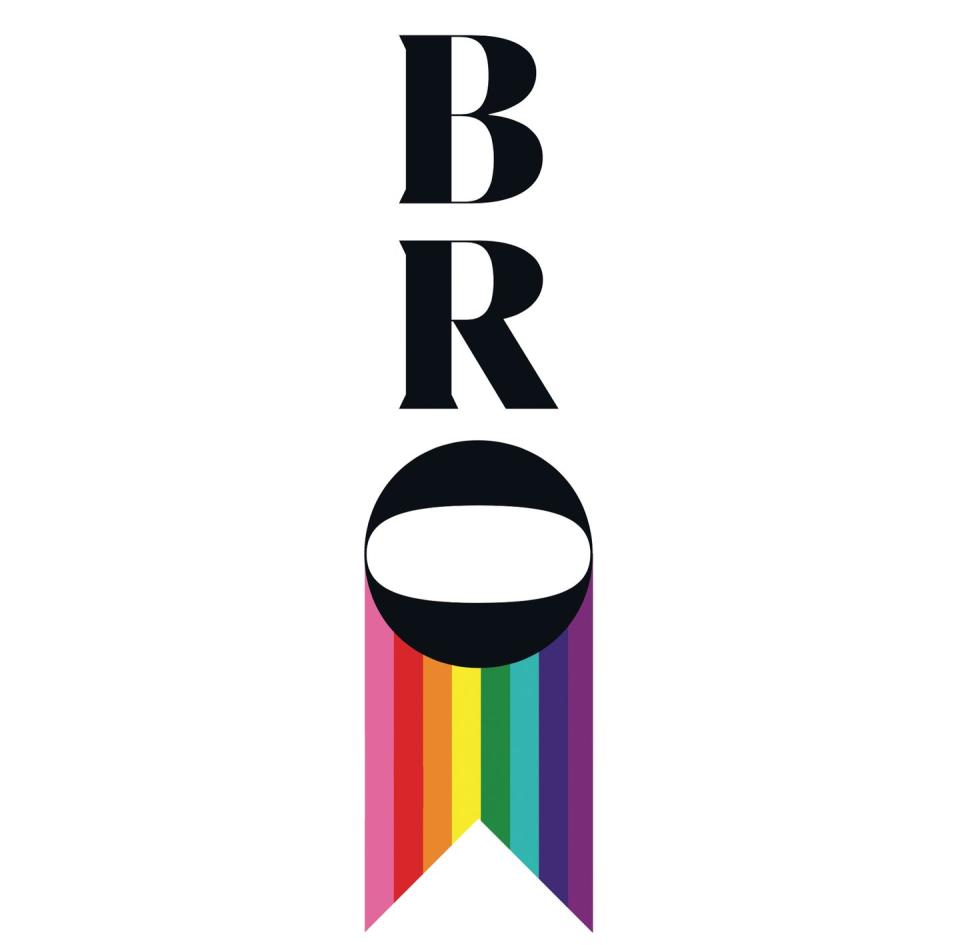
Bros begins with Billy Eichner's character, Bobby, mocking a Hollywood exec's outrageous invitation to make a big-studio gay rom-com that appeals to straight men. "Am I gonna get buttfucked by Jason Momoa while we're both worrying about a volcano?" Bobby asks, his caustic delivery effectively cutting the startled exec down to size.
It's the kind of nightmare scenario that the forty-three-year-old Eichner, an openly gay actor for more than two decades, feared he might be in when Nick Stoller, who has directed dude-friendly rom-coms like Forgetting Sarah Marshall and Neighbors and is notably straight, approached him about making a big-studio gay rom-com. "There's something about being queer in Hollywood," Eichner says from a well-appointed hotel room during an early-summer Zoom call. "It turns you into a fighter." But Stoller and coproducer Judd Apatow didn't want Eichner to warp or water down his vision for anyone. "Nick, to his credit, always said that the main thing was that the movie be honest and truthful," Eichner says. "And that if it was, it would resonate with everyone."
So he hung up his gloves and the three men got to work on Bros (out September 30), billed as both the first big-studio movie starring and made by an almost entirely LGBTQ+ cast and crew and the first R-rated gay rom-com to be released by a major studio. The hilarious, heartfelt, and unflinching comedy features two confident and complicated gay men, Bobby and Aaron (played by Luke Macfarlane), stumbling toward love. Queer comedy stalwarts like Jim Rash, Dot-Marie Jones, Harvey Fierstein, Bowen Yang, and Guillermo Díaz, plus memorable newer arrivals like Miss Lawrence and Ts Madison, round out the supporting cast, whose quintessential rom-com responsibilities include rooting for the handsome will-they-or-won't-they couple and landing some of the movie's best jokes.
Esquire gathered Eichner, Stoller, and Apatow to find out how they shaped what could've been just another tired genre flick into something not just funny but also surprisingly tender.
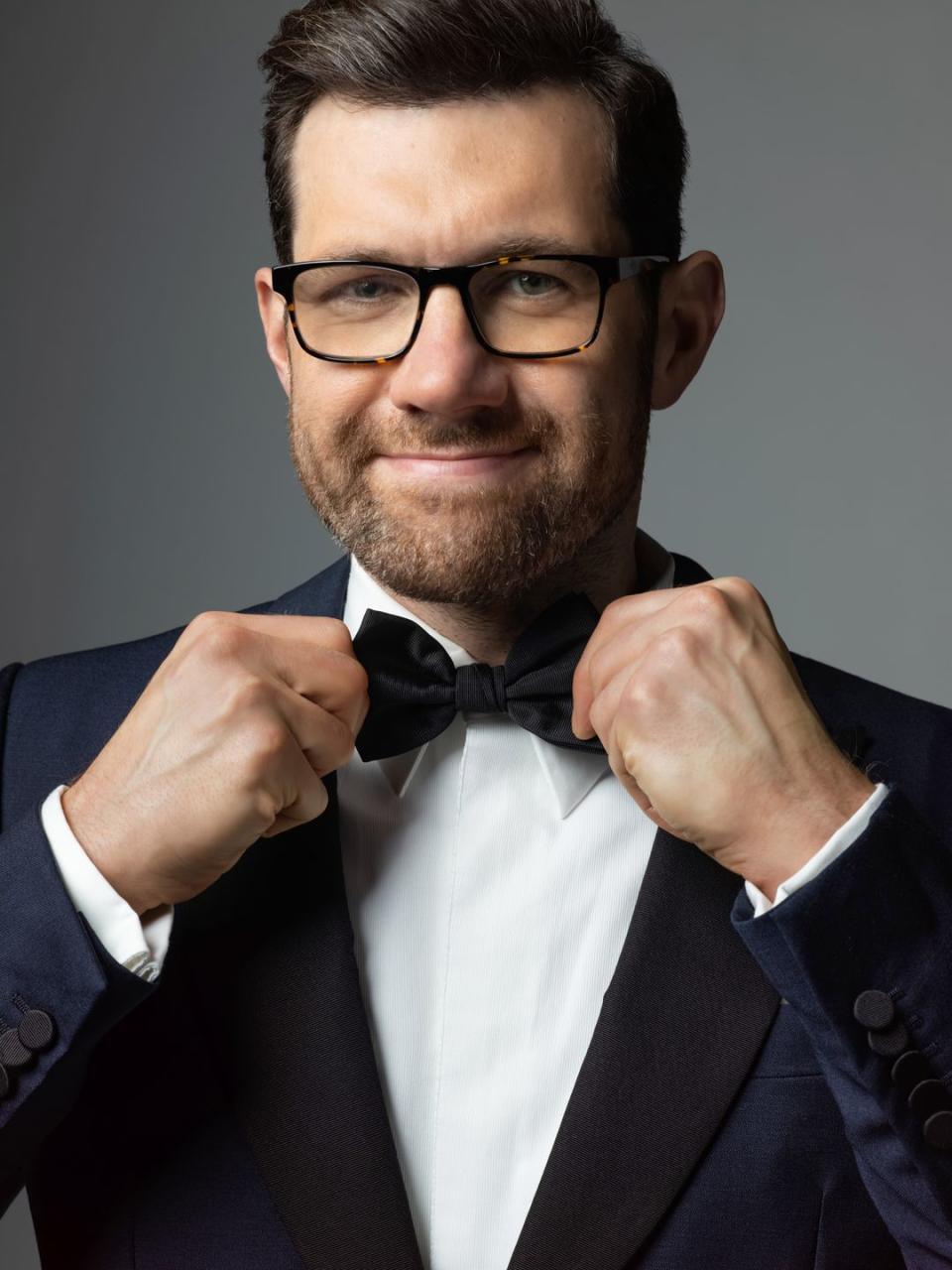
Esquire: Hi!
Nick Stoller: Hello!
We'll start when everyone is here. Just so you know, I am recording. We are on the record.
NS: If something comes up that we want to be off, do we say, "Off the record"?
That's exactly what you do.
NS: So, off the record, Billy Eichner is straight.
[Apatow joins the call.]
Hello, Judd Apatow!
NS: Hey, Judd.
Judd Apatow: Hello. How are you?
NS: Are you in France?
JA: I'm in France. Can't you tell?
NS: That French WiFi is killing it.
JA: They work so hard on it.
[Eichner appears.]
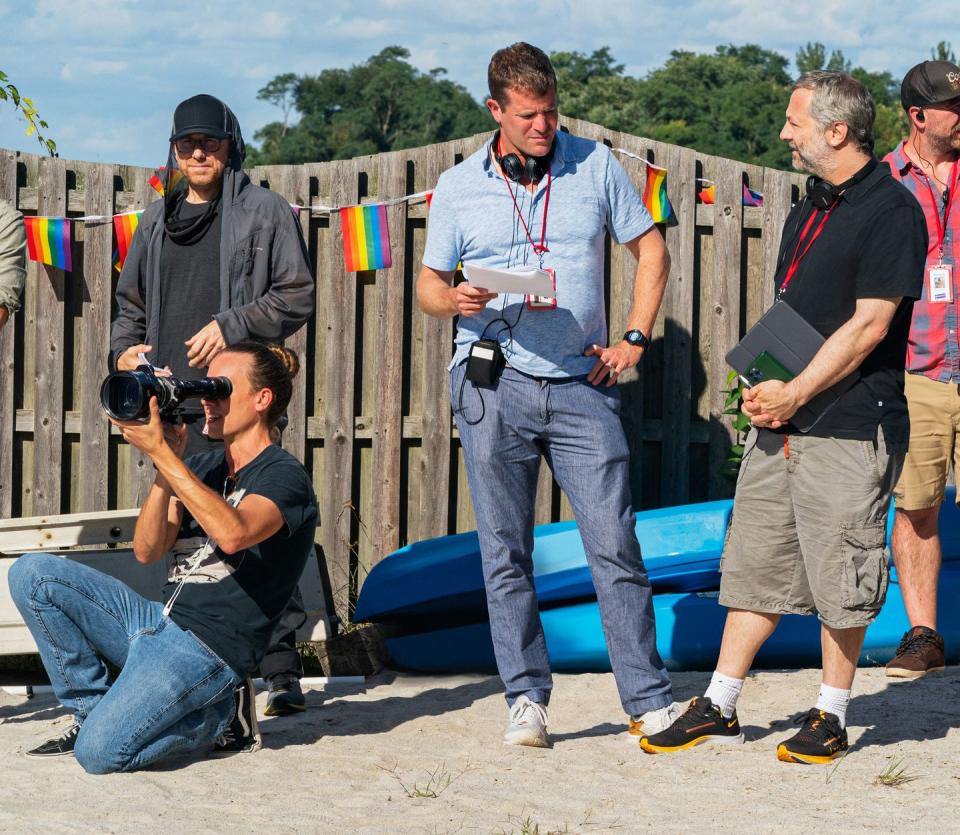
Billy Eichner: Hello—so sorry, guys. I'm in a hotel room. There were technical issues.
Hi! Now that we're all here, I just want to say that I am recording and this is on the record. If you guys want to go off the record at any point, please just say so.
JA: I'd like to go off the record and say that I am Ginni Thomas's nephew. Back on the record.
So, Bros. Let's start at the beginning. Whose idea was it to do a big-studio gay rom-com?
NS: I approached Billy. I first worked with him on Neighbors 2, then I cast him on my Netflix series Friends from College. He played Fred Savage's boyfriend and then husband. On that show, there were some dramatic scenes, and I was like, "Holy shit, Billy's a really good actor." We premiered the first episode in a movie theater, and every time Billy was onscreen, the audience went crazy. I was like, "This guy's a movie star."
BE: I'm fine.
Nick, were you just thinking, I want to make a rom-com with gay men? Or was it in reaction to what was going on in the cultural conversation?
NS: I'm obsessed with people falling in love. That's what most of the things I've done are about. I had been intrigued by the idea of a romantic comedy about two gay men. I was like, "No one's done this story on the big screen, which is insane." That's totally insane, by the way. But it's not my story to tell. It's not my life.
In addition, I think I'm good at building comedies around comedy stars. I just found Billy really magnetic onscreen, and he's really, really funny. And he has a point of view about the world. Those are the things you need.
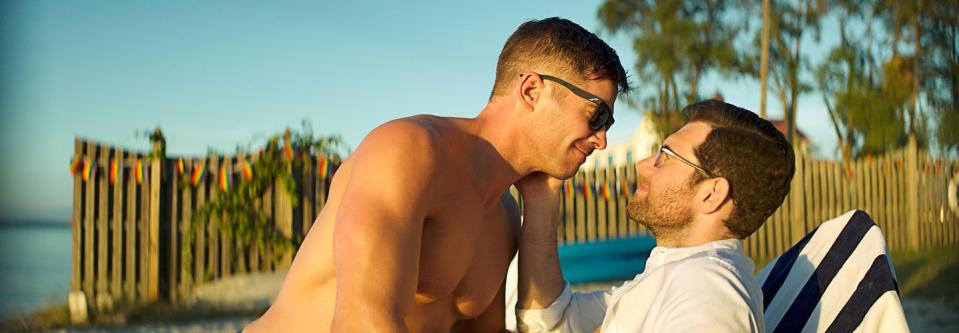
Billy, tell me what happened when a straight cis guy called you and said, "I want to make a rom-com about two gay dudes."
BE: I said yes immediately because no one has ever asked me to make a movie. Then I went home and thought, Oh, shit.
Judd, how did you come into the project? Was your role the same as it has been on your own projects?
JA: I don't think it was any different from some of those other films where we were working with people who hadn't written a screenplay before and were now writing something from a personal place. The most important thing we do is try to create a supportive environment for someone to do their best creative work. I'm aware from the get-go what Billy is afraid of, and I'm trying to help him and Nick figure out the story, and to keep the environment supportive and headed toward actually making the movie.
What were Billy's fears?
JA: I think anybody who's writing a movie is afraid of a few things. One is that they're not going to figure it out themselves. The other is that they're going to figure it out and people are going to disagree with their instincts and it's going to get mutated into something it shouldn't be. I think that was the dance we did during the entire writing process. Our nightmare would be making the bad version of this. We wanted it to be great as a movie, and we knew it was important that it came out well and was authentic.
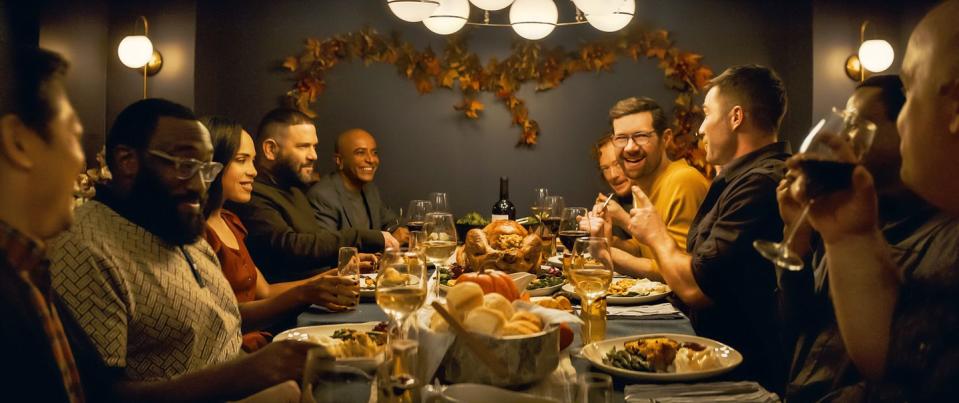
Billy, the bar is so high for LGBTQ+ movies. We're a fickle community, and everyone has a lot of opinions on how we should be portrayed. Were you thinking about that while writing the script?
BE: Definitely. For better or worse, I've spent a lot of time on social media, where a lot of the type of criticism you're talking about tends to get exceptionally amplified. One of the things I explained to Nick and Judd early on is that the LGBTQ+ community is complicated. We're not united by one race or ethnicity or nationality, or even one gender identity or sexual orientation.
But ultimately it's one movie. A rom-com, by its nature, 90 percent of the movie is going to focus on the central couple. It can't be about every single person in the LGBTQ+ community. That would be a really bad movie. But knowing all that, we wanted to build a story that was as inclusive as possible.
Did you feel pressure to make sure it was representative enough?
BE: Here's the problem: This is the first R-rated gay rom-com ever released by a major studio. We've gotten so few movies like this, and we get so few movies like this, that on the rare occasions we do, there is this insane amount of pressure to speak to every corner of the community in equal doses, which is literally impossible to do in an hour-and-forty-five-minute rom-com. No one watched The Lost City and said, "Why didn't it speak to all straight white people?"
NS: It actually did, though!
BE: Those Hollywood movies that star straight actors never get that same type of criticism, because every movie is about them. One movie like that doesn't have to hold the weight of an incredibly diverse community of people.
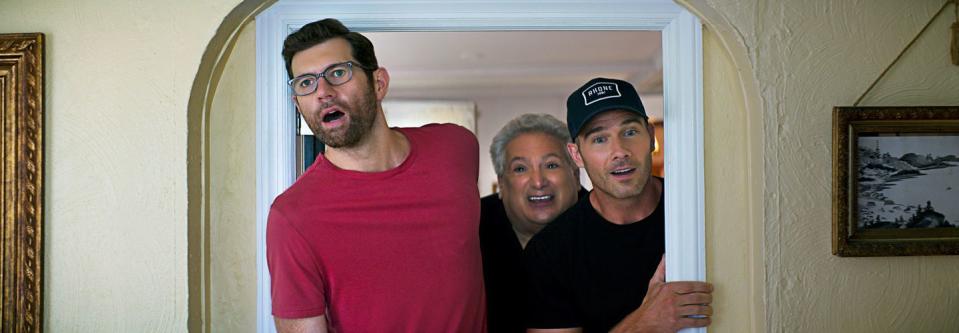
But you felt like this movie did.
BE: I think we did the best that we could.
I thought the satirical approach you used to discuss representation was a wise choice because it prevented those queer infighting scenes from seeming too serious.
BE: Exactly. We're making a comedy. We're not doing an earnest drama here. So it was about finding a way to be representative but also to keep the movie funny and smart.
NS: I'd also say, I like a big comedy cast. All the representation is very important, but the movie just needs to destroy from start to finish. It needs to be really funny. This was a way to achieve both things: representation while being very funny, and hopefully breaking a bunch of new talent. Eve Lindley is, like, a comic genius. She's so funny. And even people who've been around for a while, like Jim Rash and Dot-Marie Jones, to give them a platform—that they should have already, by the way—to destroy is exciting. I always say the visual effects of comedies are new talent.
Let's do a round-robin about what you learned from each other while working on the movie.
JA: Oh, that's a very good question. That's the right question.
NS: I learned so much from Billy, obviously about the LGBTQ+ community and about love between gay men and all that. But also I think I go for jokes and set pieces. It's just what I like. And one of the things I learned while working with him is that it's okay to slow down and have a four-minute conversation in the middle of a movie.
This article appeared in the SEPTEMBER 2022 issue of Esquire
subscribe
JA: At the first table read, we were surprised and thrilled by how emotional the movie was, in addition to being funny and romantic. It really was powerful and moving in ways that Billy was aware of in the writing. He'd fought for certain moments, and I think they all landed. Those are the best moments in the movie.
BE: It's almost overwhelming, the amount that I learned from Nick and Judd.
JA: I feel the same way. I do.
Tell me about some memorable exchanges you all had during the feedback process. Did anyone have to explain any of the jokes they'd written?
JA: One area that Billy spent a lot of time explaining to us was the idea of masculinity in these relationships, and the idea of bros and how that affects relationships.
Billy, there are a lot of different avenues you can take within the gay world. You were clearly interested in topics like gym culture and masculinity. How did you settle on those themes?
BE: Bros is directly inspired by a Billy on the Street segment that I did with Jason Sudeikis where I'm running around talking to people in a "Hey, bro, what's up?" voice. I'm wearing a white backward baseball cap and a sports jersey and khakis. A very good gay friend of mine saw that segment and said to me, "You look really hot in that video. You should dress like that." I thought that was so funny, absurd, sad, all of it, because I knew he meant it on some level, even though he was playing it off as a joke. I've always been fascinated by that.
Gay men of my generation didn't grow up seeing a ton of gay representation on TV. What we got was often very stereotypical and two-dimensional. When my friends and I were coming out in the late nineties, you'd go to Abercrombie & Fitch and were greeted by guys who looked like the six-packed American masculine ideal. They're even naked on the shopping bags, playing lacrosse and football. These were the images we got as we were coming of age as gay men. That does something to you. I think it does something to straight guys, too. It was this subtle homoerotic thing.
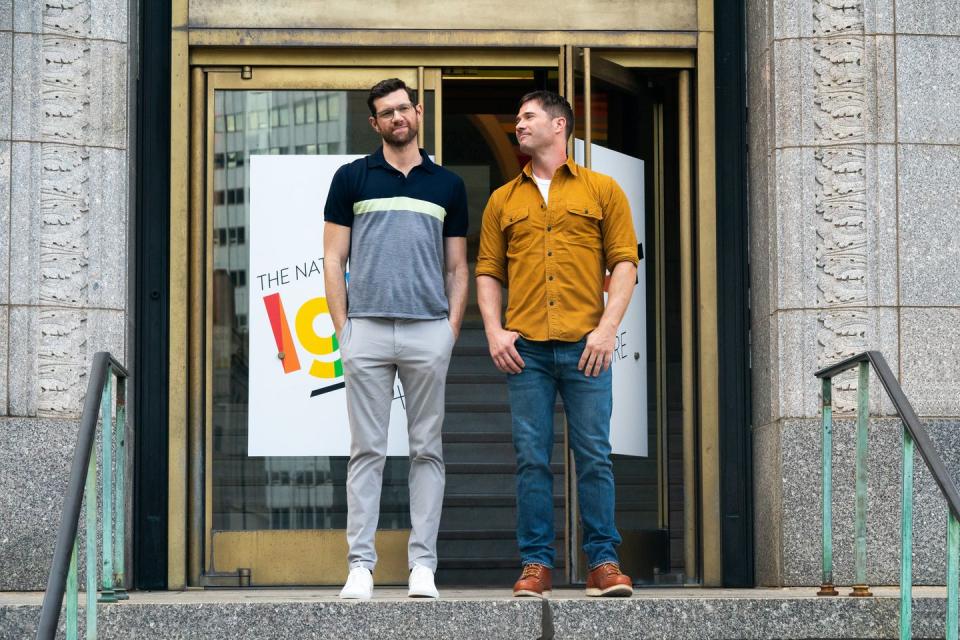
NS: I wouldn't describe it as a subtle homoeroticism.
BE: I think that gay men of my generation have always put this very conventional type of masculinity on a pedestal. There are so many land mines here because you can't make generalizations. Of course, not every gay man feels that way.
I also wanted to build the story around an openly gay male character who was extremely confident and very high functioning, because a lot of the time the gay characters we do get, they're so neurotic, almost like they're a satire of a gay man. What happens when that person who is so self-sufficient, who is so self-reliant and really prides himself on being those things, as a lot of gay men do, because we've had to be—what happens when that person falls in love?
Nick, Judd, what did you relate to in Bros?
JA: I'm always interested in people who feel out of place. The first time I was allowed to direct, in 1998, I directed an episode of The Larry Sanders Show about Scott Thompson's character suing the show because it was a hostile work environment. People were making gay jokes at him all the time. Scott was very passionate about it being done correctly, because he knew how rare it was to get to tell a story like that. When we did Freaks and Geeks, I always thought, I feel out of place like all these kids, and what I related to a lot—besides the loneliness, and the awkwardness of trying to find love and to decode another person—were a lot of the ideas about people in an environment that's telling them, "You should be ashamed of who you are. You're not allowed to be proud of your essence." When Billy and Nick wrote the movie, that was obviously an essential idea in the script.
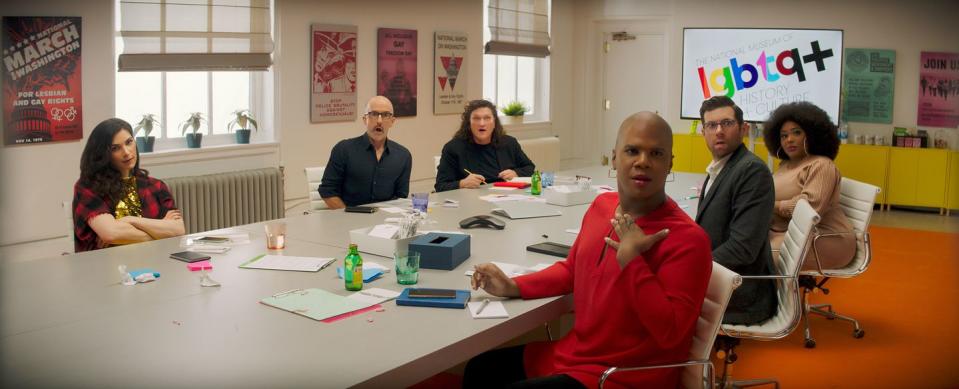
NS: When Billy told me the Bros story and talked about masculinity, I immediately got it. You can be straight or gay or whatever; toxic masculinity is something you've experienced. I have experienced it. I've felt a tremendous drive to succeed based on some idea of being a man. That's, I think, how it came out for me. I really responded to that in the script. And Bobby's relationship with Aaron, and the moment he is vulnerable, I have experienced that in my own life. Just opening up and then asking yourself, Is this person going to fucking stab me in the heart and destroy me? That, to me, is very relatable.
BE: These issues of masculinity are just as prevalent among straight men, if not more so. Gay men have evolved over the years—RuPaul's Drag Race has helped—and we've become more comfortable with the less conventionally masculine sides of ourselves. But I think straight men not wanting to appear vulnerable, wanting to be physically strong, that's really an issue. They're dealing with it, too.
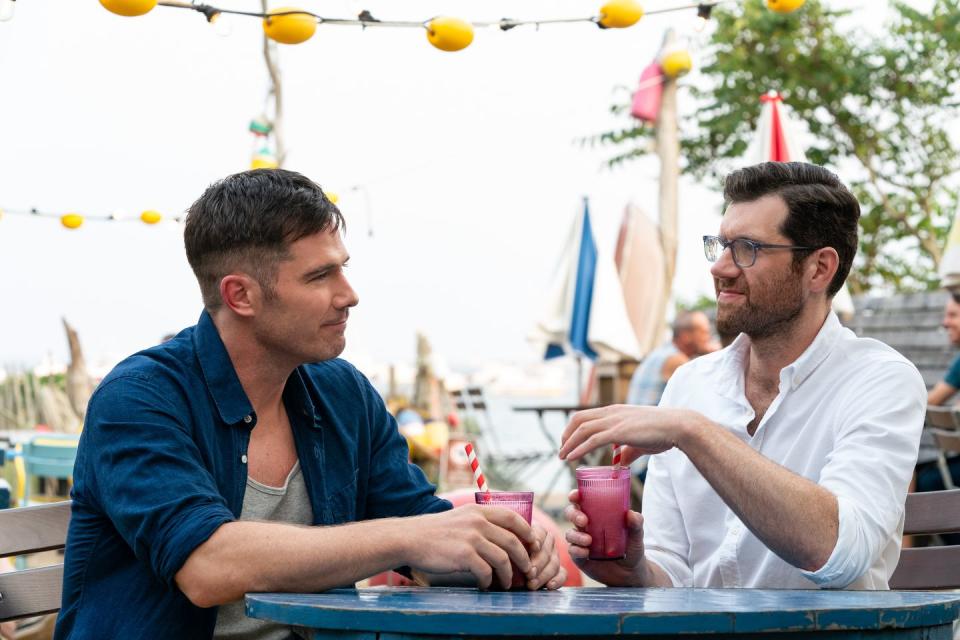
Okay, Billy, tell me which of the straight cis men in Nick's and Judd's movies you've related to.
BE: I've never seen any of their films.
Do you have any fears about the movie coming out?
NS: I'm not scared. I'm just excited to get it out there. The worst thing is when you screen something that just creatively isn't working. That's never been the case with this. It's always worked from the first cut.
BE: I've never been prouder of anything I've ever done professionally. It's a historic movie, so there's not much of a blueprint for it. That's very exciting, but also, if I'm being honest, as the gay man at the center of it, it's a little nerve-racking. What we really need is for everyone who loves comedy—but especially straight audiences—to know that this movie is for them.
You guys, can we talk about the sex scenes?
BE: We can totally talk about them.
How did you approach them?
NS: My joke with Billy has always been that I'm comfortable shooting any kind of sex scene as long as it isn't earnest. But we actually have romantic sex scenes. I think it'd be weird to make an R-rated romantic comedy that's trying to be real and not show these characters having sex.
BE: Sex is fun, and it's funny. Everyone takes sex so seriously, especially gay men. Sometimes we're all just a bunch of headless torsos on Grindr, chatting, looking for sex. But I think we're all fronting a bit. Sex can be so many things. I thought that if we did our jobs well, it could be a lot of things at once that you don't ordinarily see. Not because they're gay but because they're funny and romantic at the same time. And because it's a comedy, it's a chance to remove the stigma from some of this stuff. It's time for us to get comfortable with this.
In print, the quote from Nick Stoller about liking big comedy casts was mistakenly attributed to Judd Apatow. Esquire regrets the error.
You Might Also Like

